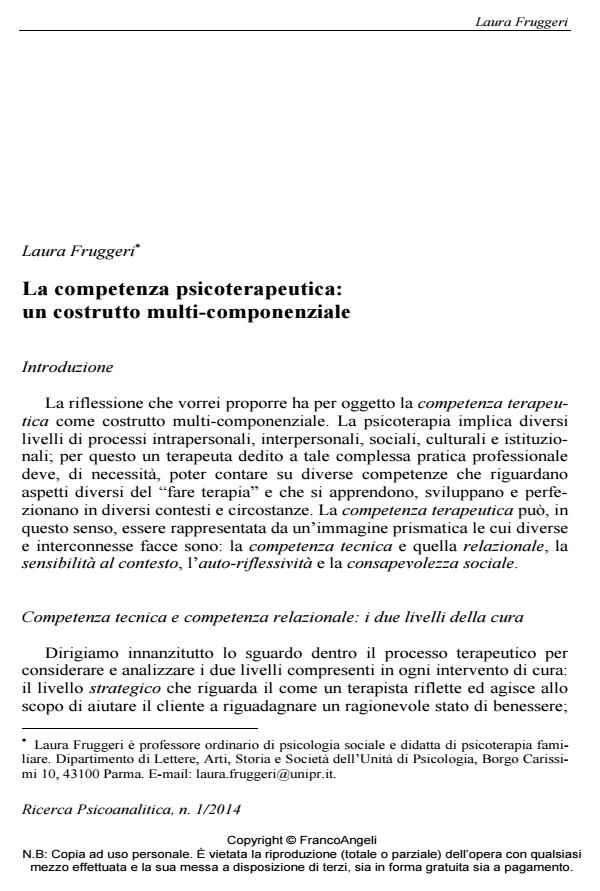Psychotherapeutic competence: a concept made up of many components.
Journal title RICERCA PSICOANALITICA
Author/s Laura Fruggeri
Publishing Year 2014 Issue 2014/1
Language Italian Pages 13 P. 9-21 File size 639 KB
DOI 10.3280/RPR2014-001002
DOI is like a bar code for intellectual property: to have more infomation
click here
Below, you can see the article first page
If you want to buy this article in PDF format, you can do it, following the instructions to buy download credits

FrancoAngeli is member of Publishers International Linking Association, Inc (PILA), a not-for-profit association which run the CrossRef service enabling links to and from online scholarly content.
Therapeutic competence is presented as a concept made up of many components, a sort of prismatic image whose many interconnected faces are: technical and relational skills, sensitivity to context, self-reflection and social awareness. It is necessary to keep in mind that if technical skill (the one highlighting recursivity between the therapist’s theoretical framework, attribution of meaning and actions) is defined within a theoretical- practical model, the other aspects of therapeutic competence are present in different models and are more and more crucial today. So today’s psychotherapists are pressed to "reform" their knowledge and skills as they are aware that they operate in a personal, relational, institutional, social and cultural context within which the meanings of therapy emerge from the intertwining of processes taking place at different levels in the here and now of patient/ therapist interactions. We are invited to reflect on the concept of therapy by overcoming the current fragmentation and non integration of different types of knowledge.
Keywords: Technical skills, relational skills, contextualization, self-reflection, social awareness
- Il rischio iatrogeno in psicoterapia Laura Fruggeri, in RIVISTA SPERIMENTALE DI FRENIATRIA 3/2015 pp.105
DOI: 10.3280/RSF2015-003007
Laura Fruggeri, La competenza psicoterapeutica: un costrutto multi-componenziale in "RICERCA PSICOANALITICA" 1/2014, pp 9-21, DOI: 10.3280/RPR2014-001002